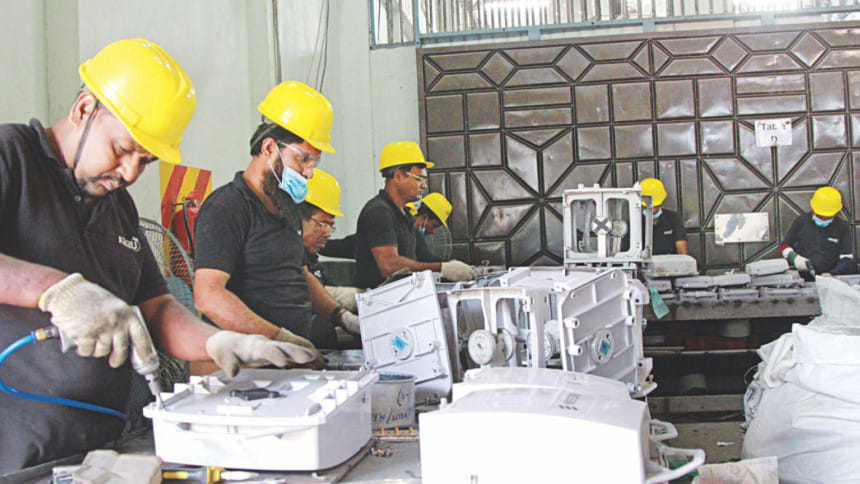A burgeoning recycling industry

We seldom think about what our discarded electronics do to the environment; they contain harmful substances like mercury that do not degrade with time but seep through the soil and are toxic in nature. Our landfills are bursting with such discarded electronic items (e-waste). A class of businesses have emerged, quite spontaneously, to recycle e-waste items. The lead news item in this newspaper yesterday investigated how some businesses have specialised in turning discarded items and are repairing them to be sold again. Items range from mobile chargers to photocopy machines and mobile phones. This is indeed timely; a 2014 study by an NGO found that Bangladesh was producing over 10 million tonnes of e-waste every year.
Azizu Traders in Narayanganj's Fatullah for instance, which employs 130 people engaged in collecting e-waste and exporting them to Singapore, started back in 2003. Today, some 300 scrap metal traders are engaged with the company to collect some 50 tonnes of waste every month. While companies both medium and small are actively engaged in turning some of the waste into reusable products for sale, the sad fact is that we are waging a less than successful battle against the millions of tons of waste in an increasingly consumer-driven and fashion-conscious society.
It is clear that the government must come up with a comprehensive policy on electronic waste. Building more landfills is not the answer. Rather steps and policies need to be formulated so that those involved in the safe disposal of e-waste and recycling of old equipment are recognised to be part of formal sector. The recycling industry needs official encouragement which could include authorities providing incentives on investments so that more businesses can engage in the sector.

 For all latest news, follow The Daily Star's Google News channel.
For all latest news, follow The Daily Star's Google News channel. 



Comments